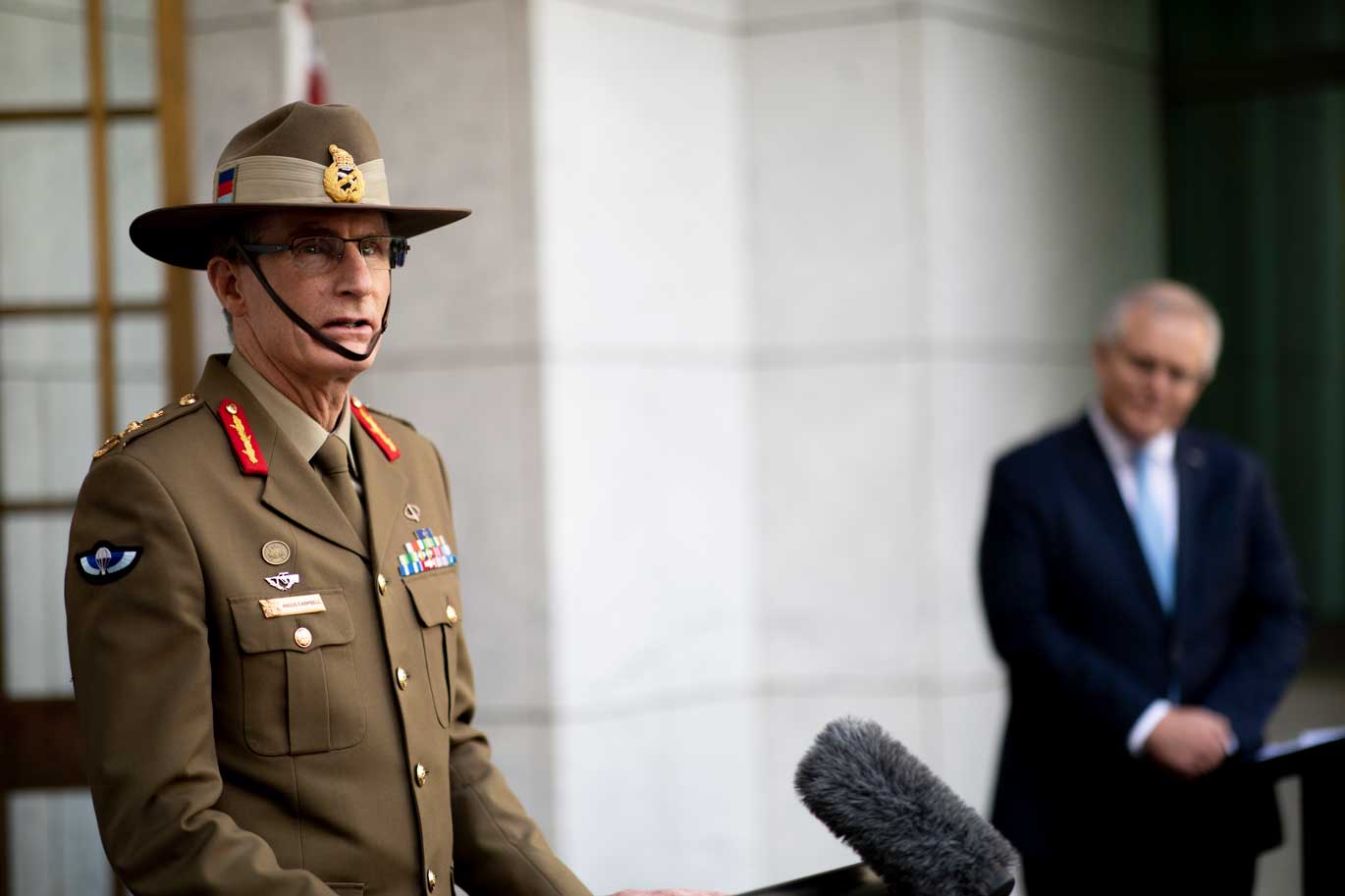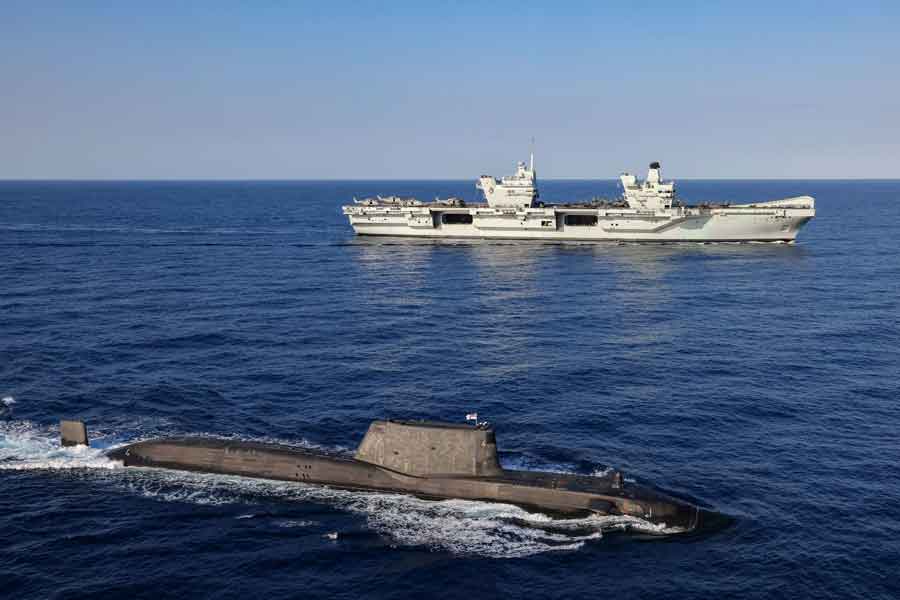Australian General Defends Controversial AUKUS Pact
AUKUS is not a new defence pact or ASEAN Nato, but a commitment to collaborate on a broad range of technologies.
Anita Hawser
20 October 2021

AUKUS Pact
Australia has hit back at criticism of its recently announced AUKUS alliance with the US and the UK to build nuclear submarines, saying it is not the start of some new ASEAN Nato or a return to a Cold war mentality, or even a new defence pact.
“It is a commitment to collaborate on a broad range of technologies and one part of the answer to the challenges we face in Asia Pacific,” General Angus Campbell, chief of Australia's Defence Forces stated at the Pacific Future Forum on board HMS Prince of Wales from the 20–21 October.
Gen. Campbell described AUKUS as a complement to what already existed and a military commitment to ensuring a free, open and inclusive Indo-Pacific.
He said the rise of sharp power, authoritarian states tilting information and decision making in their favour, posed tough questions for Australia. “In a more contested environment, the risk of Australia being drawn into a state conflict is no longer as remote a possibility as it used to be, he said.
“The Australian Defence Force's maxim of being a regionally superior force will be challenged by rapid advances in technology – AI cyber, hypersonic weapons — which increase uncertainty and the risk of miscalculation. “
With the rise in hypersonic missiles, the ADF no longer has the luxury of strategic warning times, Gen. Campbell cautioned. “If you look at hypersonic weapons, we have rapidly reduced time frames, which leads to a need for a far more considered faster mechanism to work and partner with and to pre-emptively deter behaviour,” he told the forum.
Gen. Campbell said the Indo-Pacific did not need its own military alliance, like Nato, but more informal bilateral and multilateral mechanisms that would help it deal with disruptive technologies and the implications they pose for common security.
“It is a matter of building bilateral trust, unilateral arrangements and seeing what can emerge,” he said. One audience member questioned whether AUKUS would be a considerable stretch to all three nations' industrial and military capabilities, which could result in sacrifices needing to be make elsewhere?
“AUKUS a considerable opportunity and offers enormous potential, said Gen. Campbell. “It's an addition to, not instead of other things. We will work as a community to focus on those areas of greatest common potential. That is how we will manage the realization versus the cost and challenge of[AUKUS].”
RELATED ARTICLES
Australia Chooses The Nuclear Option
Australia scraps problem-plagued French submarine building program for nuclear-powered submarines using British and American technology.
